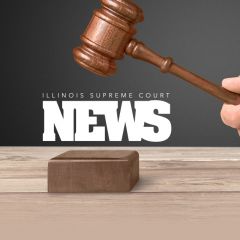Illinois Supreme Court Appoints Christopher Hantla as Circuit Judge in 4th Judicial Circuit
Justice David K. Overstreet and the Illinois Supreme Court have announced the appointment of Christopher “Kit” Hantla as Montgomery County Resident Circuit Judge in the Fourth Judicial Circuit.

